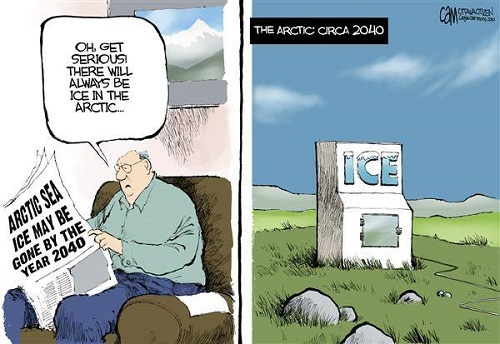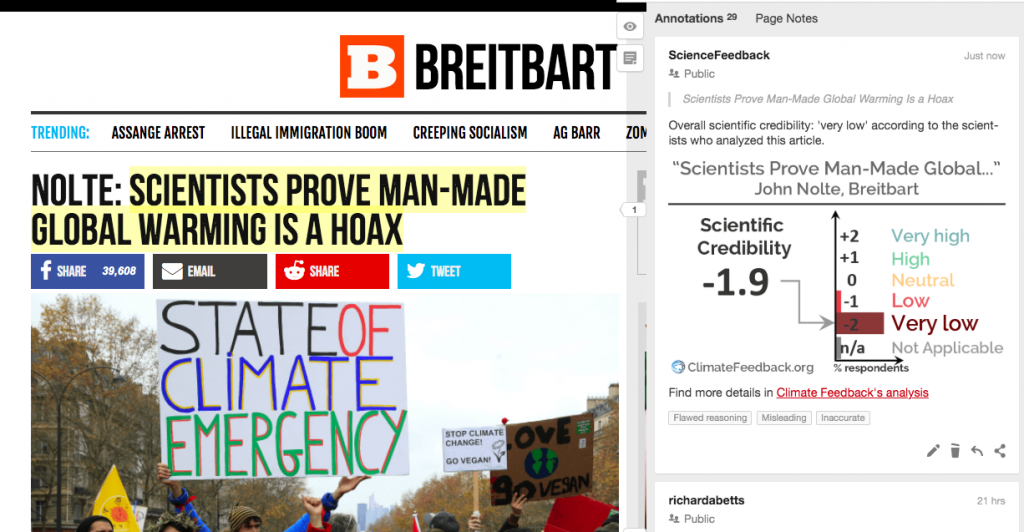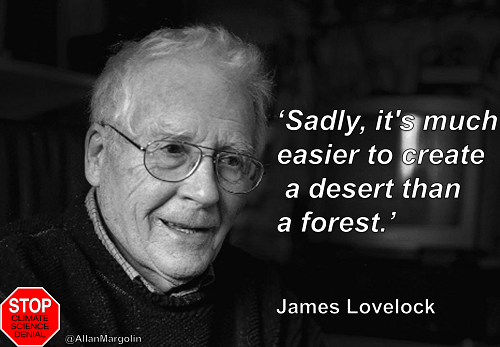2019 SkS Weekly Climate Change & Global Warming Digest #15
Posted on 14 April 2019 by John Hartz
Story of the Week... Toon of the Week... Coming Soon on SkS... Climate Feedback Review... SkS Week in Review... Poster of the Week...
Story of the Week...
How a Few Small Fixes Could Stop Climate Change
"We have to act fast, and achieve the biggest possible impact with the actions we take."

Small steps could make a big impact on climate change. Source: Pexels
When thinking about new ways to tackle climate change, University of Oxford researcher Thom Wetzer first points out how a modest rise in temperature could push the Earth to a tipping point that yields dramatic climate change. A little warming, for example, could cause Arctic permafrost to melt, unleashing enough heat-trapping methane to cook the planet.
Wetzer and his colleagues turned the idea of a tipping point on its head, theorizing that small changes in policy or the development of a new technology, for instance, could lead to big, positive changes in the way we produce and consume energy. Their proposal is outlined in a paper in the journal Science.
“Climate change brings risks that will, in one way or another, impact most people’s lives?—?and certainly the generations that follow,” said Wetzer, a co-author. “Whether that is through extreme weather events, changes in the economy or the reactions of politicians to these climate risks. We can either put up with these risks and watch them grow out of control, or we can act to mitigate the worst impacts of climate change.”
How a Few Small Fixes Could Stop Climate Change by Marlene Cimons, Nexus Media, Apr 11, 2019
Toon of the Week...

Coming Soon on SkS...
- Getting involved with Climate Science via crowdfunding or -sourcing (update) (Baerbel)
- The Future for Australian Coal (Riduna)
- Should 'green new nukes' be part of the Green New Deal? (Greenman)
- Is the grid ready for electric vehicles? (Jan Ellen Spiegel)
- New research this week (Ari)
- 2019 SkS Weekly Climate Change & Global Warming News Roundup #16 (John Hartz)
- 2019 SkS Weekly Climate Change & Global Warming Digest #16 (John Hartz)
Climate Feedback Review...
Breitbart article baselessly claims a study of past climate invalidates human-caused climate change

Analysis of the article, Scientists Prove Man-Made Global Warming Is a Hoax by John Nolte, Breitbart, Apr 6, 2019
Ten scientists analyzed the article and estimated its overall scientific credibility to be ‘very low’
A majority of reviewers tagged the article as: Flawed reasoning, Inaccurate, Misleading.
Review Summary
This Breitbart article comments on a story by ThinkProgress about a study related to past climate, mistakenly concluding that it invalidates the science that shows human activities are currently altering the climate of our planet.
Scientists who reviewed the article explain that it builds on a fallacious reasoning, as if the fact that climate has changed due to natural forcing in the past would make it impossible for human emissions of CO2 to change it now. In reality, the climate of the Earth can be influenced by various forcings, including changes in the Sun’s irradiance and atmospheric concentrations of greenhouse gases, which in turn can be due to natural causes (as has been the case in the past) or activities related to human actions—as is the case currently.
All the scientists indicated that the content of the article does not support the claim made by the headline.
Breitbart article baselessly claims a study of past climate invalidates human-caused climate change, Edited by Scott Johnson, Climate Feedback, Apr 11, 2019
Poster of the Week...

SkS Week in Review...
- 2019 SkS Weekly Climate Change & Global Warming News Roundup #15 by John Hartz
- New research, April 1-7, 2019 by Ari Jokimäki
- What will Earth look like in 2100?, YouTube video by Climate Adam
- Climate change poses security risks, according to decades of intelligence reports by Dana Nuccitelli (Yale Climate Connections)
- Skeptical Science at EGU 2019 - blogging from day to day by BaebelW
- 2019 SkS Weekly Climate Change & Global Warming Digest #14 by John Hartz































 Arguments
Arguments






























Comments